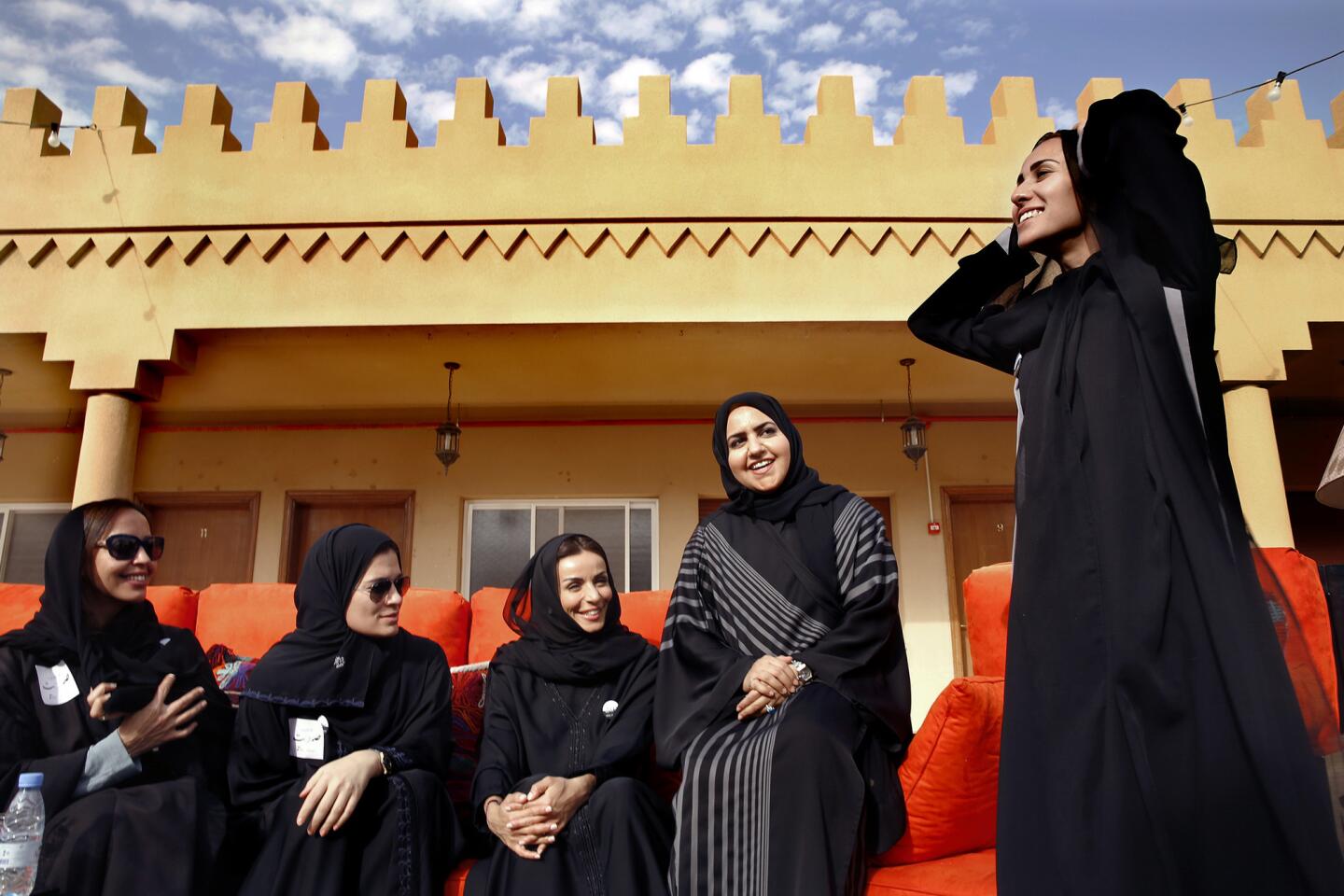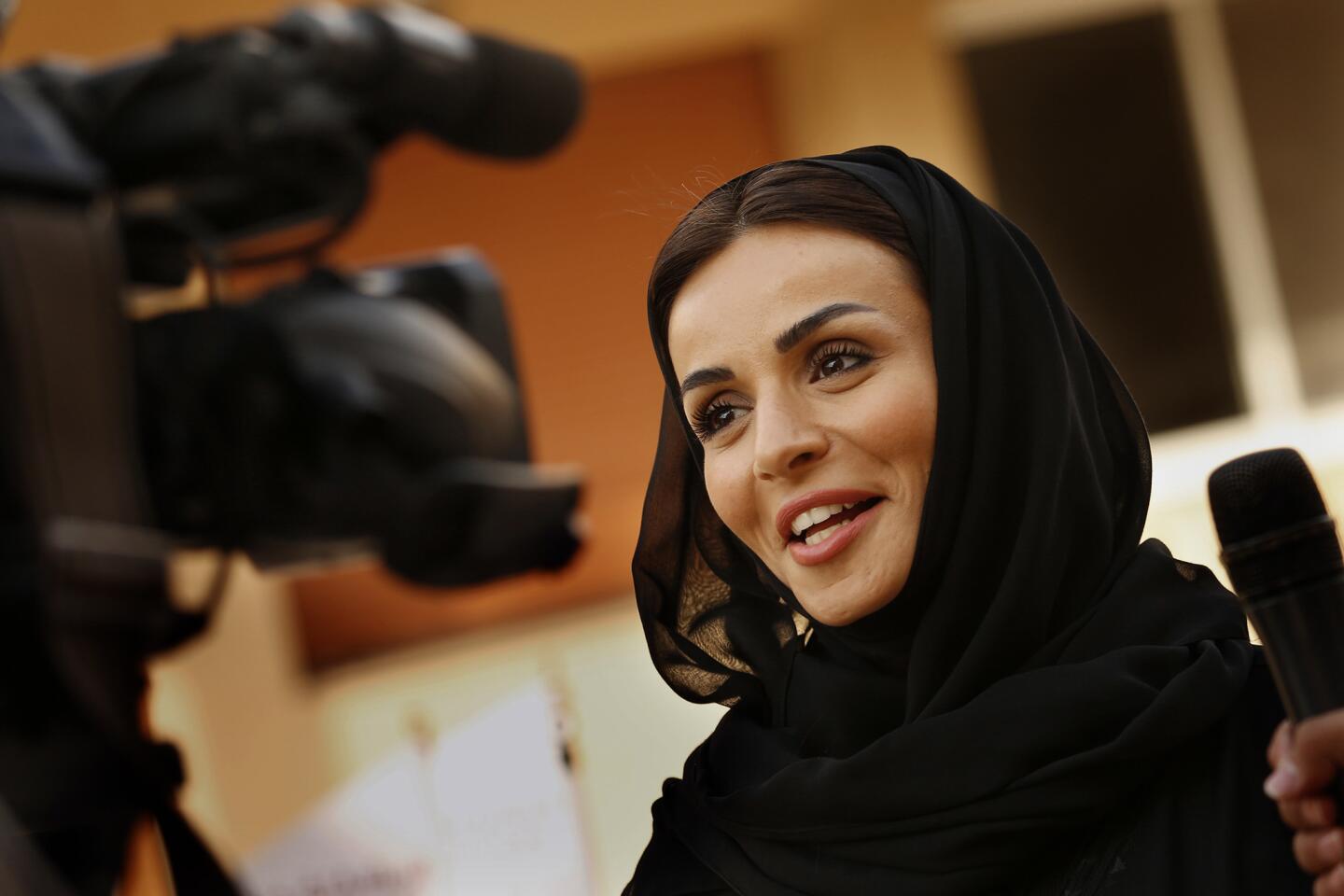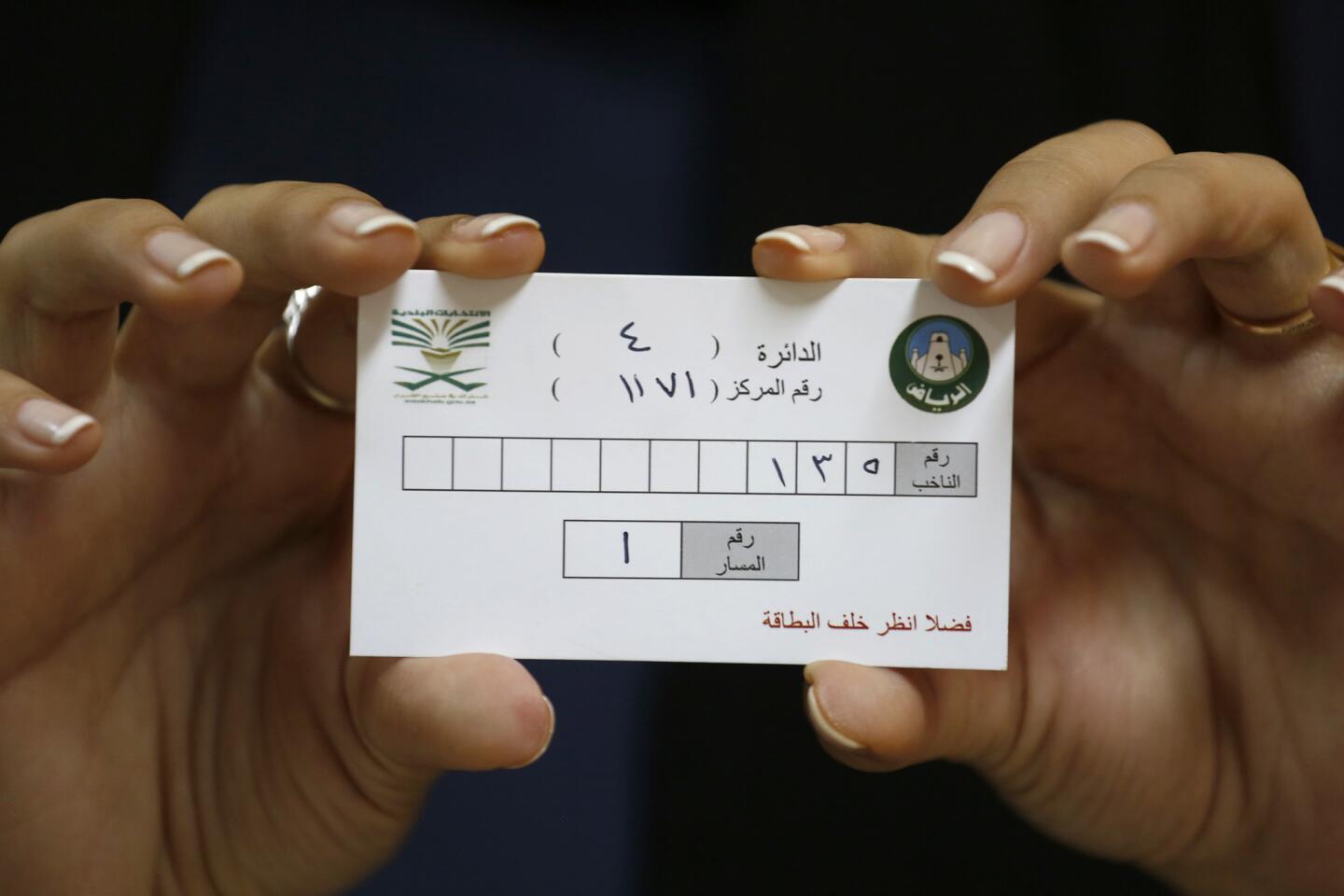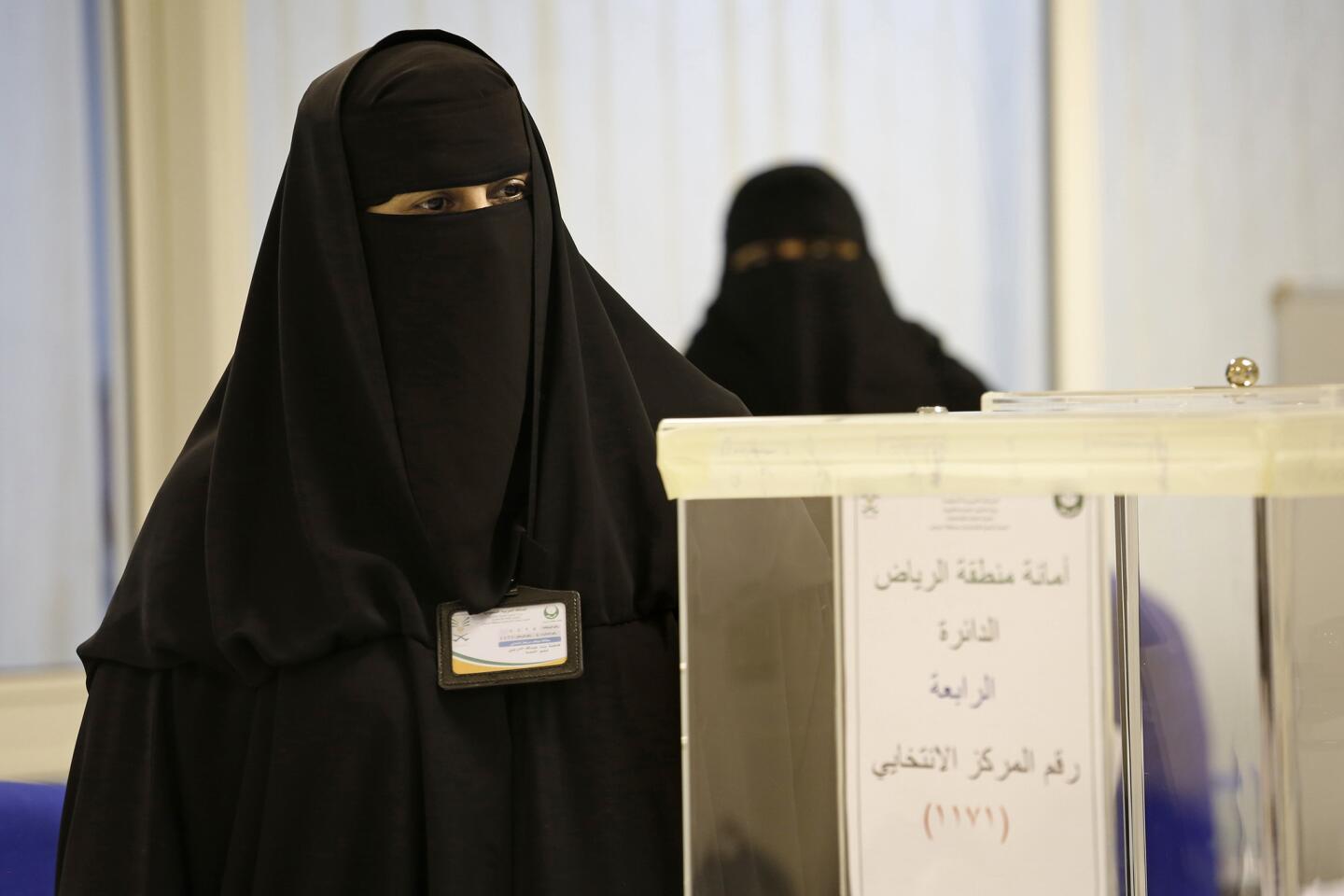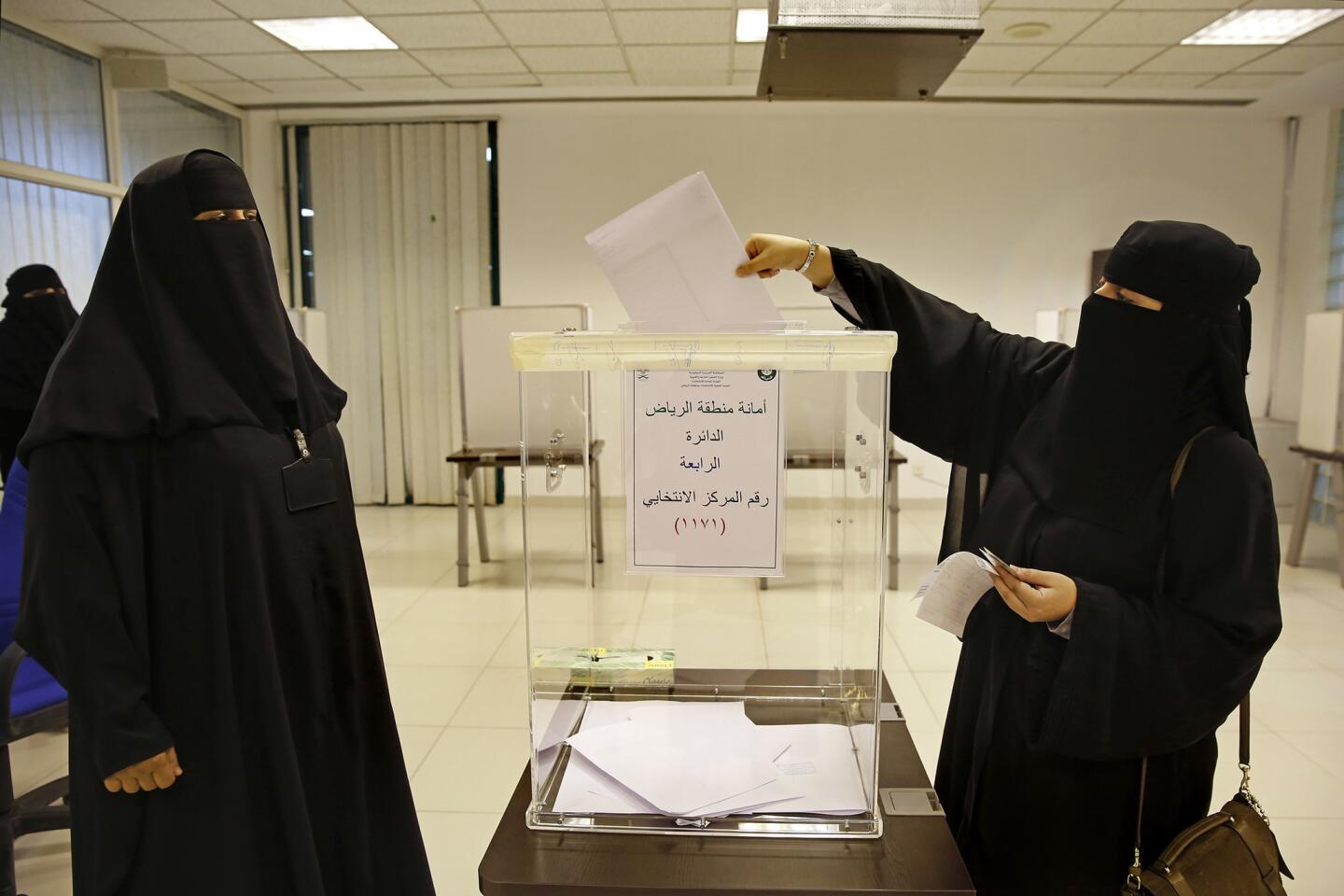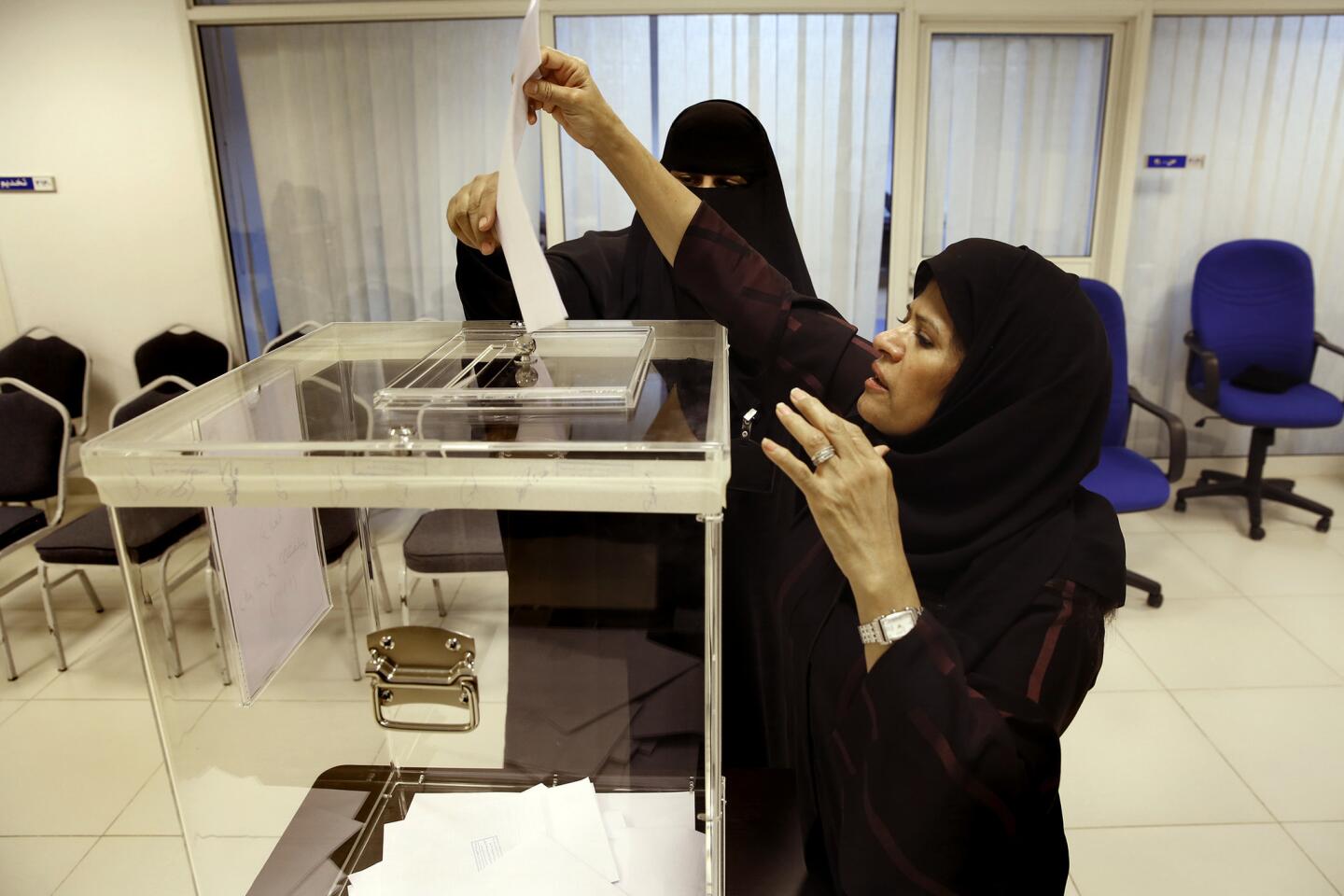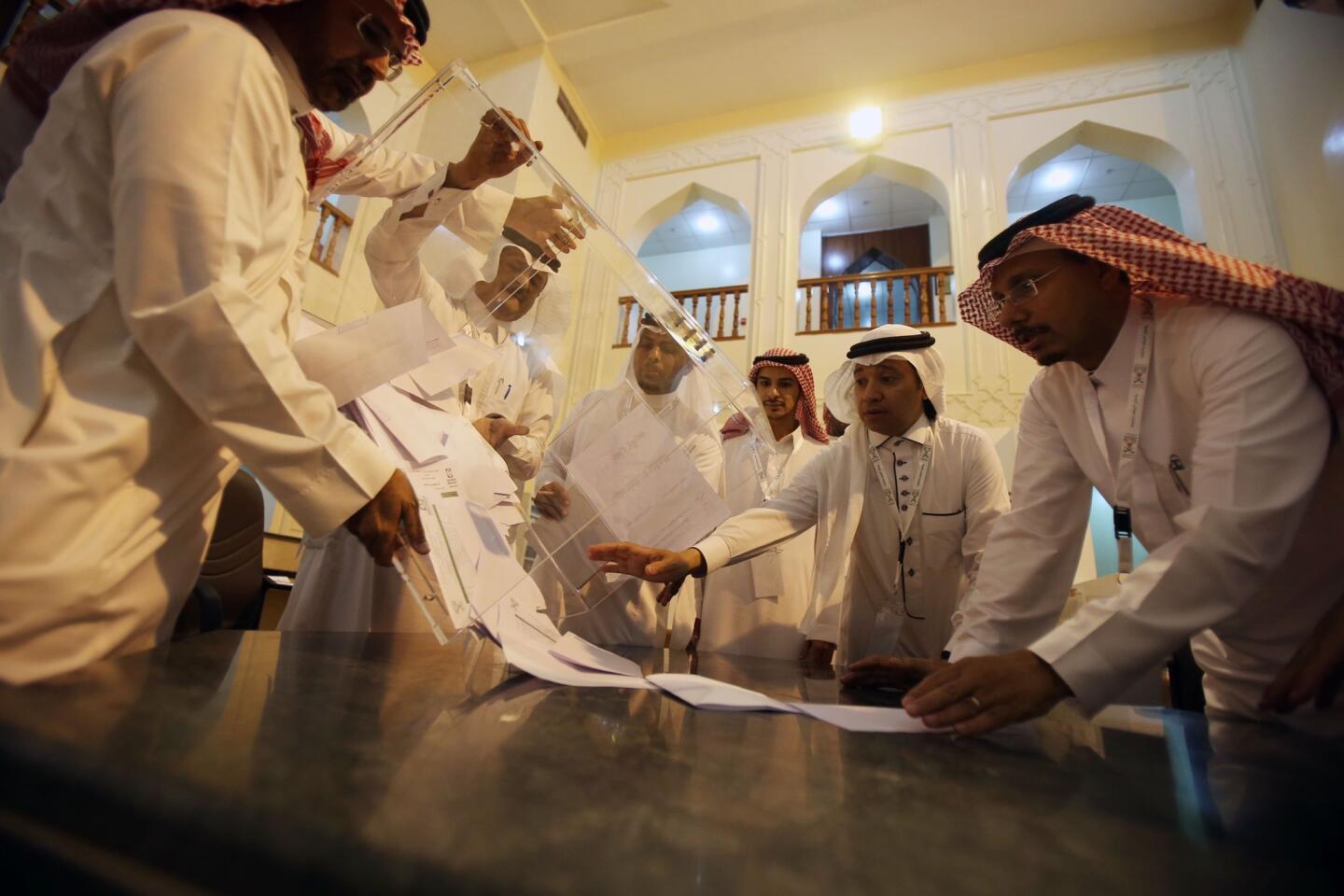Saudi Arabia women vote for the first time in landmark election
reporting from RIYADH, SAUDI ARABIA — Saudi Arabia shed its dubious distinction as the last major country to bar females from participating in elections as women cast ballots Saturday and ran as candidates in hundreds of local municipal council races.
The historic vote is being hailed by human rights campaigners as a positive step toward advancing women’s rights in the famously segregated kingdom, where women are not permitted to drive and are subject to strict male guardianship laws.
Mai Sharif, 32, was the first person to vote at a women’s-only polling center in downtown Riyadh. The all-female team of election volunteers erupted in applause as she dropped her ballot in the box, a black veil hiding most of her face.
“We have been waiting so long,” Sharif said.
She and others are hoping the election opens the door to other reforms, such as allowing women to travel outside of the country without permission from a male relative. But they also acknowledge that in this Muslim kingdom dominated by the Saudi monarchy and an ultra-conservative clerical establishment, change is likely to move at a glacial pace.
“Some people don’t trust women,” Sharif said. “But as we vote and as we win, we will change those ideas.”
Saudi officials said the results of the election would be released Sunday. They said nearly 1,000 women and 7,000 men competed for seats on 284 municipal councils, which oversee a range of local issues, including budgets for the upkeep of public facilities.
Although council members exert limited power in a country in which King Salman and his appointees make most major decisions, many women appeared to view the elections as an important opportunity to be heard.
Rasha Alturki said she cried as she cast her ballot. “I felt included and empowered,” said Alturki, who heads a nonprofit organization that works on behalf of women. At a party her group hosted as the polls closed, about a dozen women celebrated and shared their experiences between bites of sandwiches and sips of mint tea.
Alturki came of age in the 1980s, a decade characterized by the rise of fundamentalist Islamic movements in Saudi Arabia and much of the Arab world. She remembers opportunities for women shrinking as clerics called for more restrictive Sharia law and social principles.
“It was not a good time for discussions about women’s empowerment,” said Alturki, who said most professions at the time were limited to men. “We got put down because we were women.”
Under the late King Abdullah, women were appointed to a national advisory body and allowed to practice law and work as sales clerks in women’s clothing shops. Today, women are increasingly seen in the workplace, from boardrooms to the women’s sections of restaurants and cafes.
Abdullah, who died in January, also decreed that women should be included in municipal elections. For the first such election Saturday, officials said, more than 130,000 women registered to vote. More than a million men are registered.
At a news conference, the official who oversaw the election said Saudi society was ready for women’s inclusion.
“We are proud of our women in Saudi Arabia,” said Abdullatif bin Abdulmalik Al Shaikh, the country’s minister of municipal and rural affairs. “We see Saudi women as ministers, as presidents of universities, as surgeons. They have proven themselves.”
Shaikh did not say whether any other policy changes were afoot, and he did not acknowledge a human rights problem.
“There is no discrimination in Saudi Arabia,” he said.
Adam Coogle, a Middle East researcher with Human Rights Watch, called women’s entry into the democratic process part of a “slow, steady progression” in women’s rights in Saudi Arabia.
“It sends a very positive message,” Coogle said, “but it should be clear that discrimination against women absolutely still goes on.”
His group has called for an end to the male guardianship system, under which women are forbidden in policy and practice from obtaining a passport, marrying, traveling or accessing higher education without the approval of a male guardian.
Such practices are often defended by the country’s conservative clerics. Some of them spoke out against the inclusion of women in the electoral process, posting YouTube videos suggesting it was an attempt at Westernization.
In fact, the campaign was unlike any held in the West.
According to election rules, female candidates would be fined if they were caught speaking directly to male voters. In some cases, they enlisted male relatives to make their campaign pitches. Others opted to reach out to voters through social media instead.
Some female activists complained that the registration process was stacked against women because they were required to show proof of residency — a difficult task for a woman who doesn’t pay bills or own property.
There were no immediate reports of problems at election centers Saturday, although at times there was confusion about how exactly the process works.
Amal Badredin Alsnari arrived at the community center she believed was her polling place before the doors opened at 8 a.m., clutching her voter ID card. Alsnari, a doctor, was one of 50 candidates in a central Riyadh district.
At first, volunteers there were unclear about whether it was permissible for a candidate to vote. A phone call to election officials determined it was.
But then the volunteers couldn’t find Alsnari’s name on the list of registered voters. It turned out she was supposed to be at a different polling station several blocks away.
Alsnari rang her driver. Along with being banned from driving, women are discouraged from walking on the streets alone.
Alsnari said she had hardly slept Friday night. Friends had kept her up late with calls asking about the protocols for voting. “They wanted to know where to go, what to bring,” she said.
She had run a vigorous campaign, with community events where she touted her platform: more community centers with classes for women and day care for children.
After finally casting her ballot, she felt relief. Now there was nothing she could do but wait for the results.
Twitter: @katelinthicum
ALSO
Agreement on global warming gets finishing touches
K-pop group denied entry at LAX on suspicion of being sex workers, band says
Ex-Oklahoma police officer guilty of raping black women ‘picked the wrong lady’
More to Read
Sign up for Essential California
The most important California stories and recommendations in your inbox every morning.
You may occasionally receive promotional content from the Los Angeles Times.
